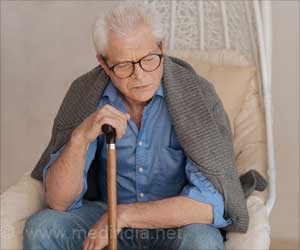Old people who want to reduce weight can sign up for community center coaching, which is less expensive and more effective than fancy weight management programs.

‘Weight loss regime need not necessarily be done through sessions at fancy gyms laden with advanced technology, but can be achieved in a much more efficient way at the community centers.’





Researchers learned that YMCA staff, with minimal training and monitoring, can help overweight seniors lose weight through diet and exercise comparable to state-of-the-art – and expensive – weight-loss management programs. “The connection the diet and fitness staff built with these older adults was absolutely pivotal to the results that we saw,” said Jack Rejeski, Thurman D. Kitchin Professor of Health and Exercise Science at Wake Forest and co-principal investigator for CLIP-II. “People think technology has all the answers. But in this study, as in most of my work, relationships made the difference.”
Tony Marsh, also a professor of health and exercise science and Rejeski’s co-principal investigator, trained the community center staff for the CLIP-II study. He said there are three core reasons why their efforts kept study participants engaged and committed to losing weight :
- Staff provided very specific advice on what participants needed to do to make a change.
- The study team really listened to participant feedback. “We tried not to push things on people,” he said. “It’s not a boot camp. The YMCA staff were very empathetic and understanding.”
- Participants were held accountable every day, through tracking weight, level of activity and ability to move.
“If you know you couldn’t pick up your grandchild and now you can, that’s a clear demonstration of the impact on your life,” Marsh said. “One participant told us that she could start gardening in her sloping back yard because she had built the strength to keep her balance.”
CLIP-II studied 249 men and women age 60-79 who were overweight and exercised very little. For 18 months, they followed one of three weight-loss regimens: diet alone; diet plus walking for aerobic exercise; or diet plus resistance (weight) training.
Advertisement
All three groups lost weight. The groups that combined diet and exercise interventions lost the most: on average, nearly 20 pounds.Interestingly, the group that combined weight training with diet lost more fat and less muscle mass keys to maintaining mobility as you age.
Advertisement
“This is a practical, pragmatic approach to weight loss that anyone can do with the right guidance,” Rejeski said.
Source-Newswise









